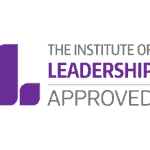Training, Education and Knowledge are the cornerstones to empowering your workforce to be truly exceptional. All companies understand the benefits of training and further education for their employees and offering them opportunities for personal and professional development is a common strategy to retain, attract and engage your top talent.
However, creating an environment within the workplace for employees to manage their mental health, support others and thrive requires a specific type of training. Not all ‘fluffy’ but filled with insight, tools and techniques to develop resilience, determination and drive in every employee.
Creating awareness about ourselves enables us to understand our feelings more clearly and change our behaviours for better outcomes. Recognizing the signs of struggle in our colleagues is critical. Offering support at an early stage often means preventative measures as opposed to a cure.
Excellent communication has a significant impact on these outcomes and listening is a vital component of this.
The Right Training
Training on mental health issues should be done by a professional. It’s an important social issue, and we are human, not robots. The delivery and implementation need to be facilitated by an individual who has a deeper understanding of the issues at hand and how to deal with them compassionately.
Finding the right people and the right programs to educate you on good mental health is very important. Their values must be aligned with yours, and for best results, the program needs to be tailored to your organization. It’s important to discuss with potential facilitators beforehand what the training will include, what impact it should have, and how to measure it for a return on investment.
No Previous Experience Required
Every employee can undertake training when it comes to mental health and wellbeing. There is no place for ranking or hierarchy within the organization when it comes to discussions and sharing experiences. From frontline staff to middle management and the boardroom, every employee’s input should be of equal value.
The Cost of Training
Cost is always a factor when it comes to training, which is why companies often ask about ROI. It’s essential to clarify how the impact of training can be measured and tracked. However, it’s important to note that the value of proper training far outweighs the cost.
Let’s take a quick look at the costs incurred if you don’t implement relevant and practical training. According to the Stevenson Farmer report: Thriving at Work (a recent review on Mental Health and Employers), 300, 000 people leave work every year due to mental health issues. In addition to this, an independent study by Deloitte revealed the annual cost to employers in Britain was between £33 billion and £42 billion (with over half the cost coming from presenteeism). So, what’s the real cost?
After the Event
One of the biggest question’s employers ask when considering training is “Will our employees be engaged, and will they retain the knowledge learned after the training has taken place?”
For any training to be successful implementation is key. Ensure all employees undergo the training to raise awareness of the issues and start to create a culture of openness about mental health.
Putting the right systems in place to monitor mental health will enable you to measure its impact on work-related absences while gaining clarity on your ROI.
Follow up is crucial, and further education is required, along with ongoing discussions and in-house training. A blended approach to mental health is the best way to keep all employees up to date with relevant help and support, there isn’t one single approach that will cover all of your needs.
You can begin by implementing proper systems and procedures to track employee sick days. You’ll also need to develop strategies for training those in good mental health, managing those who are struggling and supporting employees who are ill and may be absent from work due to poor mental health.
Nominate individuals to begin developing core principles, values and goals for mental health and wellbeing strategies. Empower your people to help themselves and support their colleagues.
“When we know better, we do better” Maya Angelou.
Think of training by a professional as your first steps into discussing mental health in the workplace. Teaching and training aren’t enough. Education should be interactive, used to promote discussion and start the ball rolling on moving the elephant out of the room and riding him right through the canteen and into the board room!
Once we build a knowledge base on mental health issues and all its nuances, we can begin to feel more confident talking about it. Fear starts to dissipate, and barriers slowly break down. People lower their guards, and we can begin to start having open and honest discussions about wellbeing in the workplace.
For more information on Empowering your People and creating an open and honest forum in your workplace give us a call to see how we can help.



